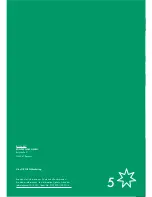
39
GB/MT
sprayed can even penetrate the skin through a
glove and be injected into your body.
Do not treat an injection as a simple cut.
A high pressure jet may inject toxins
into the body and cause serious injuries.
If the spray is injected into the skin, seek medical
help immediately.
Pay attention to any possible dangers
of the material being sprayed. Note
the markings on the container or the
manufacturer’s information relating
to the material being sprayed, includ-
ing the instruction to use personal
protective equipment.
The manufacturer’s
in-structions must be followed to reduce the risk
of fire, as well as injuries caused by toxins, car-
cinogens, etc.
Never spray without the nozzle head
in place.
The use of a special nozzle insert
with the appropriate nozzle head reduces the
probability of a high-pressure jet penetrating
the skin and injecting toxins into the body.
Take care when cleaning or replacing
the nozzle inserts. If the nozzle insert
becomes blocked during spraying,
follow the manufacturer’s instructions
and switch of the device and release
the pressure before you remove the
nozzle for cleaning.
Liquids under high
pressure can penetrate the skin and inject the
body with poison, which can lead to serious in-
juries.
Keep the mains lead plug and the spray
gun trigger free of paint and other liq-
uids. Never hold the lead to help keep
it connected.
If the connection comes apart
it could result in an electric shock.
Children or persons who lack the knowledge or
experience to use the device or whose physical,
sensory or intellectual capacities are limited
must never be allowed to use the device without
supervision or instruction by a person responsi-
ble for their safety. Children must never be
allowed to play with the device.
Q
Before use
Pull the mains plug out of the
mains socket before you carry out any task on the
electrical power tool.
Q
Connecting the air hose
Remove the protective caps
17
and insert the
air hose
15
into the hose connection socket
2
on the spray gun. Rotate the air hose
15
until the
hose lock button
1
fits into place and engages.
Insert the other end of the air hose
15
into the
hose connection socket
12
on the motor.
Note:
After use protect the hose ends with the
protective caps
17
.
Q
Preparing the spraying surface
Mask off the surroundings of the spraying sur-
face thoroughly over a wide area. Otherwise
all non-covered areas or surfaces may become
soiled.
Make sure that the spraying surface is clean,
dry and free of grease.
Roughen smooth surfaces and then remove the
sanding dust.
Q
Diluting the spray material
Note:
Before diluting, check that the sprayed ma-
terial and the thinner are compatible. Consult the
sprayed medium manufacturer’s documentation for
information about suitable thinners (water, solvents).
If the wrong thinner is used, it can lead to lumps
forming, which may clog up the spray gun.
Proceed as follows for a sprayed material
that the manufacturer says must be thinned:
Take a measuring cup
16
with millilitre graduations.
Pour the required amount of sprayed material
into the paint cup
6
.
Thin the sprayed material by 10 % with the
thinner in accordance with the manufacturer’s
instructions.
General safety advice for electrical power tools / Before use
General safety advice for electrical power tools
Summary of Contents for PFS 280 A1
Page 3: ...A 5 3 B 8 2 4 D C 9 7 10 16 15 11 14 8 6 12 14a 14a 1 13 13 17...
Page 4: ......
Page 14: ...14...
Page 24: ...24...
Page 34: ...34...














































